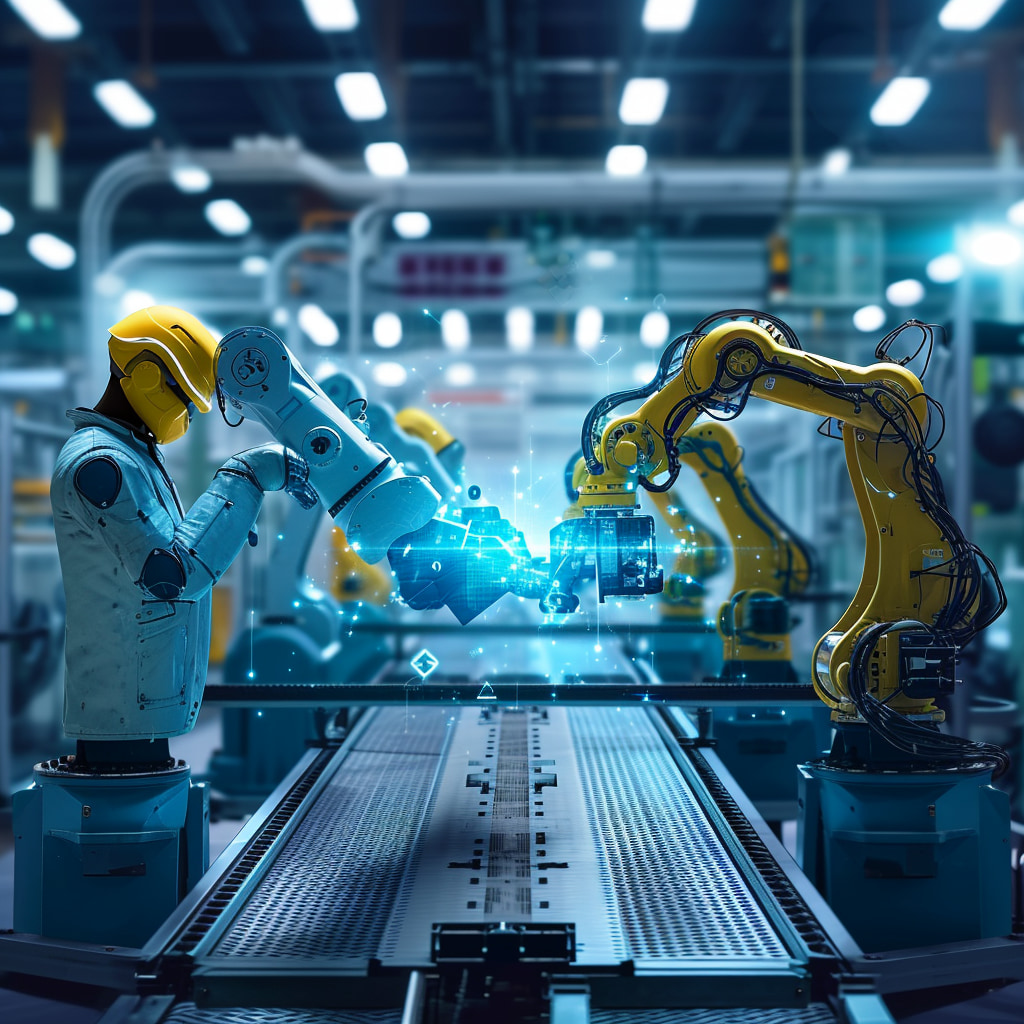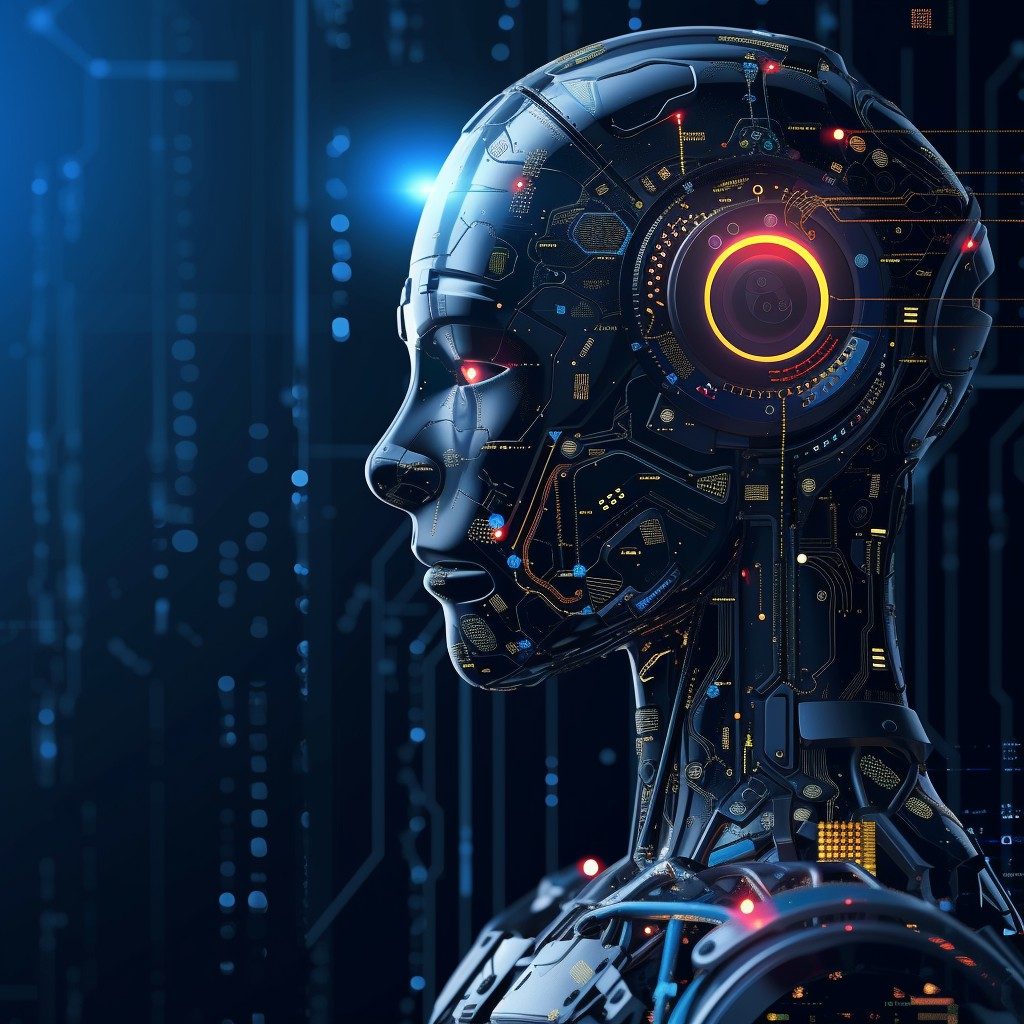In the relentless pursuit of precision and efficiency, the automotive industry stands at the forefront of digital transformation, embracing AI to revolutionize manufacturing processes. Ford and BMW showcase the power of collaborative robots (cobots) in tasks like welding, gluing, and quality control. The application of AI-managed robots in BMW’s Spartanburg plant not only saved $1 million annually but also reallocated human resources efficiently. The automotive AI market is poised to reach $7 billion by 2027, signaling a significant investment and technological advancement.
Electronics manufacturing reinvented
Precision is paramount in electronic manufacturing, and AI emerges as a crucial ally in minimizing errors, enhancing product design, and accelerating time-to-market. Samsung’s South Korea plant utilizes automated vehicles, robots, and mechanical arms for tasks ranging from assembly to quality checks. Nvidia, a tech giant, leverages AI to optimize intricate transistor configurations, demonstrating its efficacy in achieving precise results with remarkable speed. With the electronics industry projected to reach new heights, the integration of AI becomes a strategic imperative for maintaining high-quality standards.
Aerospace and defense: Soaring with AI
The aerospace and defense industry embraces AI-driven manufacturing to enhance product safety, reliability, and performance. Airbus, leveraging Neural Concept’s technology, achieved a groundbreaking reduction in aircraft aerodynamics prediction time, enabling design teams to explore thousands of changes in a fraction of the traditional timeframe. Rolls-Royce’s collaboration with IFS brings AI into aerospace manufacturing through the Blue Data Thread strategy, resulting in a 48% increase in time before the first engine removal. The AI in aviation market, valued at $686.4 million in 2022, is projected to witness robust growth, underscoring the industry’s commitment to AI integration.
Precision in the food and beverage sector
In the fast-paced world of fast-moving consumer goods (FMCG), the food and beverage industry turns to AI for advanced quality assurance. High-speed production demands efficient processes, and AI proves instrumental in boosting efficiency, cost-effectiveness, and product quality. Predictive maintenance technology, exemplified by startups like Augury Inc., enables companies like PepsiCo’s Frito-Lay to gain thousands of hours of manufacturing capacity annually. The global AI market for the food and beverage industry is set to reach $35.42 billion by 2028, emphasizing the pivotal role of AI in ensuring product quality and safety.
Pharmaceutical acceleration through AI
The pharmaceutical industry, notorious for lengthy drug development timelines, is witnessing a transformative impact from AI. Pfizer’s collaboration with IBM’s supercomputing and AI resulted in the rapid design of the Covid-19 drug Paxlovid, reducing computational time by 80% to 90%. AI’s contribution spans critical areas such as protein structure prediction, function forecasting, and designing new therapies. The potential to generate 50 new drugs, equating to $50 billion in sales over a decade, positions AI as a game-changer in drug development. With over 80 companies advancing AI-driven drug development, the industry is experiencing a paradigm shift in its approach.
A resolute path forward
A recent survey underscores the industry’s commitment to AI integration, with 63% of firms planning to boost AI spending in manufacturing. The AI in manufacturing market is projected to reach $20.8 billion by 2028, reflecting the efficiency gains and tangible benefits derived from AI adoption. The three pillars of AI in manufacturing—problems, people, and processes—need careful consideration and strategic planning. From defining the problem and addressing resources to assessing data quality, choosing AI models, and fine-tuning deployment, each step plays a pivotal role in harnessing the full potential of AI.
As the manufacturing landscape evolves, adherence to ethical guidelines and frameworks remains paramount. Rigorous checks for bias and the development of guardrails against it ensure that AI serves as a force for positive change. In a world where technology reshapes industries, AI emerges not just as a tool but as a catalyst for innovation, efficiency, and sustained growth.





